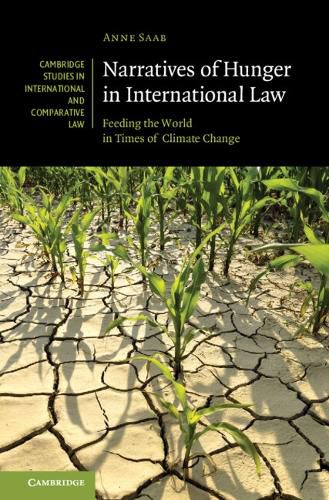Readings Newsletter
Become a Readings Member to make your shopping experience even easier.
Sign in or sign up for free!
You’re not far away from qualifying for FREE standard shipping within Australia
You’ve qualified for FREE standard shipping within Australia
The cart is loading…






This book explores the role that the language of international law plays in constructing understandings - or narratives - of hunger in the context of climate change. The story is told through a specific case study of genetically engineered seeds purportedly made to be ‘climate-ready’. Two narratives of hunger run through the storyline: the prevailing neoliberal narrative that focuses on increasing food production and relying on technological innovations and private sector engagement, and the oppositional and aspirational food sovereignty narrative that focuses on improving access to and distribution of food and rejects technological innovations and private sector engagement as the best solutions. This book argues that the way in which voices in the neoliberal narrative use international law reinforces fundamental assumptions about hunger and climate change, and the way in which voices in the food sovereignty narrative use international law fails to question and challenge these assumptions.
$9.00 standard shipping within Australia
FREE standard shipping within Australia for orders over $100.00
Express & International shipping calculated at checkout
This book explores the role that the language of international law plays in constructing understandings - or narratives - of hunger in the context of climate change. The story is told through a specific case study of genetically engineered seeds purportedly made to be ‘climate-ready’. Two narratives of hunger run through the storyline: the prevailing neoliberal narrative that focuses on increasing food production and relying on technological innovations and private sector engagement, and the oppositional and aspirational food sovereignty narrative that focuses on improving access to and distribution of food and rejects technological innovations and private sector engagement as the best solutions. This book argues that the way in which voices in the neoliberal narrative use international law reinforces fundamental assumptions about hunger and climate change, and the way in which voices in the food sovereignty narrative use international law fails to question and challenge these assumptions.